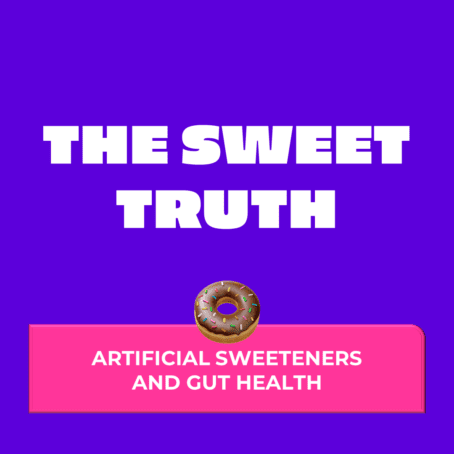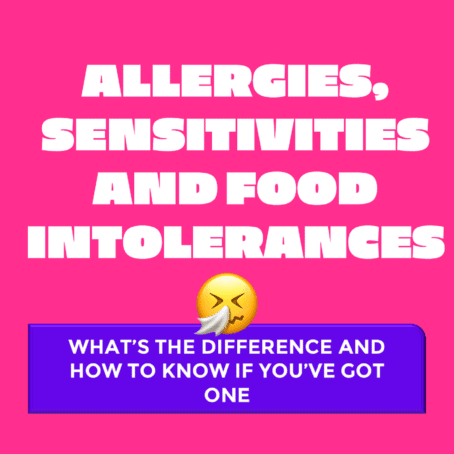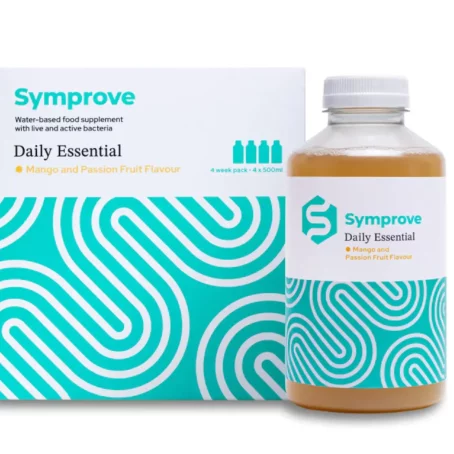Artificial sweeteners are synthetic substitutes for sugar. They provide all the sweetness but without the calories. That’s why you’ll usually find them in diet drinks, but they can also sneak into “health” foods like protein bars and yoghurts. Here, we’re breaking down the science on artificial sweeteners and gut health.
There’s been growing concern around whether artificial sweeteners are actually bad for our health. For example, the artificial sweetener aspartame, found in most diet sodas, was recently labelled by the World Health Organisation as a possible carcinogen.
There’s also a lot of research looking at the effects of artificial sweeteners on the gut health. Our gut cannot digest artificial sweeteners very well. Instead, they are broken down by our gut bacteria. Studies in animals suggest this can lead to negative changes in the balance of gut microbes, but what about humans?
We’ll look at that in a minute, but first, how to spot an artificial sweetener.






